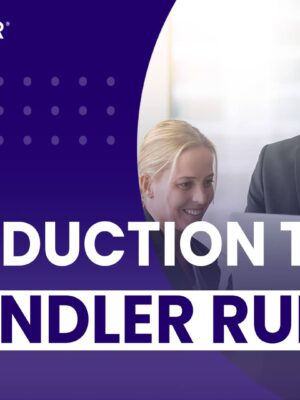Today, Selling is Neither an Art or a Science – It is Both
The dichotomy facing sales leaders today is how they reconcile the fact that most corporations provide less upfront training for their sales staff than in years past yet attach increasing importance to staff development.
This should not come as a surprise because current stock market thinking provides a powerful disincentive for firms to invest in their people on an on-going basis. You see, an organization’s investment in their human capital, in the form of training and other forms of education, is not separable from general expenditure: It therefore appears as a cost on the corporate balance sheet.
Unfortunately, as a consequence, most sales leaders have concluded that their only realistic option is to cut back on training and instead look to recruit sales professionals who, in theory anyway, already possess the necessary skills needed to do the job. They then send them out to win business armed with what they know. However, most of those same sales leaders are discovering just how difficult it is to find skilled salespeople who have all of the essential skills and personal traits. And anyway, it is not possible to equate experience or seniority with success. As I have said on numerous occasions: “Some front-line sales professionals do have ten years’ experience but far too many have one year’s experience ten times.”
In skills development, there are many similarities to sport i.e. does an athletic champion stop training as soon as they win their first medal? In music, does a concert pianist stop rehearsing as soon as they have given their first recital? In art, does the artist stop improving after they have enjoyed the first exhibition of their work? The answer in all cases is obvious and we should apply the same common-sense principals to the on-going development of our sales teams.
The reality is that selling in today’s climate is both an art and a science. Selling is a profession that demands a far wider range of skills than ever before, skills that require continual fine-tuning and constant practice.
On-going reinforcement and development are essential: Even if salespeople have undergone progressive sales training, there’s no guarantee that they will be successful. It is common knowledge that skills grow rusty over time and salespeople are prone to pick-up bad habits along the way or to simply skip steps and take shortcuts that can lead to long-term trouble.
Perhaps even more important these days, is the fact that markets, competition, technologies, and customer preferences are all in a constant and accelerating state of change. This fact requires that salespeople are able and willing to rethink their sales strategy and approach frequently and receive a regular top-up of skills and motivational coaching.
Our people are the most expensive – and valuable – asset we have so doesn’t it make sense to invest in that asset and increase its value?
Copyright © 2020 by Jonathan Farrington All rights reserved. No part of this publication may be reproduced, distributed, or transmitted in any form or by any means without permission of the author.








